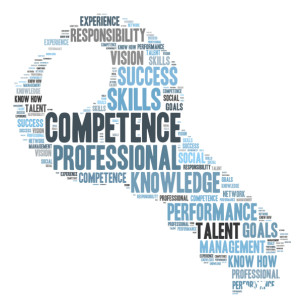In any candidate search, it’s the little things that count. Aside from the hard skills and experience required for a role, recruiters must consider many aspects of each candidate: Are they punctual? Could they maintain a positive attitude in the face of challenges? Are they polished enough to be client-facing? Are they the right fit for the team? These are just some of the questions recruiters ask themselves when measuring the soft skills that help set employees apart.
When the search is for a managerial level role, soft skills are even more important. Managers possessing excellent soft skills have the ability to relate to individuals, enhance their working environments and impact employee development. Without these skills, they run the risk of setting a team up for under performance.
To ensure a successful managerial hire, consider these four soft skills when interviewing for leadership positions and ask these questions to measure their ability.
Ability to communicate openly. Managers who maintain an open door policy and are easy to work with empower their employees. Being available and approachable creates a collaborative team environment that fosters rapport with employees of all levels. This makes it easier to provide feedback as well as recognition for a job well done. Providing regular reviews – scheduled or impromptu –reinforces employee confidence in his or her manager and helps the manager better lead their team.
Questions to ask:
- How often do you maintain regular communication with employees that directly and indirectly report to you?
- What is your preferred way to communicate with employees?
Adaptability. Managers are constantly overseeing several demanding projects with varying deadlines and priority levels all at once. Not only does this require efficient task delegation, but also the foresight to predict unanticipated problems and adjust schedules accordingly. The ability to adapt to unexpected issues is an important and regular activity in most workplaces. Managers need to be flexible with their plans and prepared to change plans as needed.
Questions to ask:
- How would you prioritize daily tasks and projects with limited resources?
- Describe a time you handled an obstacle that threatened the ability to meet a project deadline.
Ability to relate to individuals. Often, managers overlook how individual employees are motivated on a day-to-day basis. Understanding the personality of each employee is key when communicating and assigning tasks. Knowing how certain employees respond to positive and negative feedback, enables managers to couch conversations in a way that resonates best with each employee. Using constructive criticism when delivering feedback and following up with individual employees to ensure they are responding to guidance enables managers to assess different communication styles across the team.
Questions to ask:
- How do you give feedback, and how do you follow up with employees to measure their improvements?
- Describe how you avoid micromanaging but ensure that employees receive the support they need.
Reliability. Employers expect employees to show up on time and complete projects regardless of the timeline constraints or other challenges — all without complaints. In many cases, company work ethic trickles down from leadership, making it even more important that managers set the correct example in the workplace.
Questions to ask:
- How do you make yourself available to employees and support the teams you work with?
- What do you expect from employees you manage?
Many people say you can’t teach soft skills. However, like other skills they can be improved and honed through training. A strong relationship with staff, open communication, adaptability to get through difficult situations and meet deadlines are all important factors in being a successful manager, and certainly something that can be taught.










A good manager should have the ability to manage all things even when situations are worse or bad. There only his/her managerial skills will be exposed alot.
http://www.margonline.com/